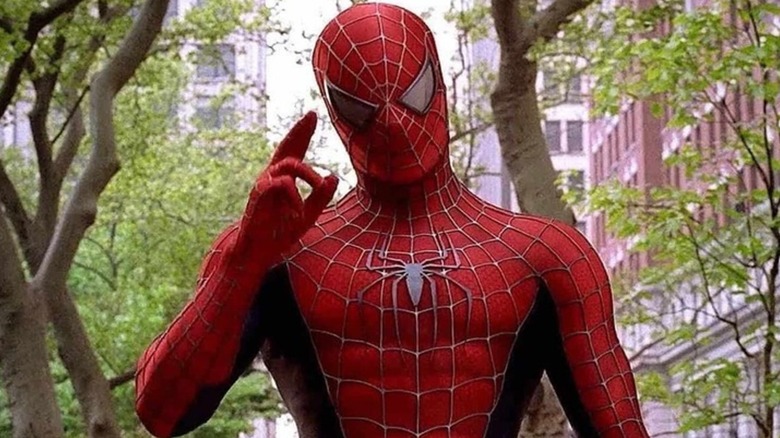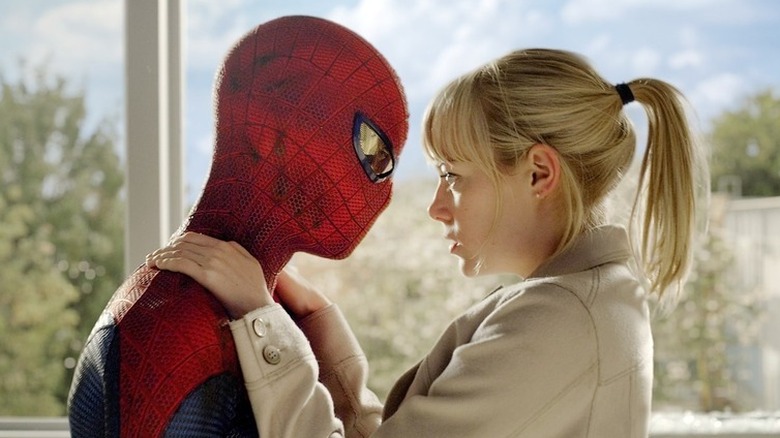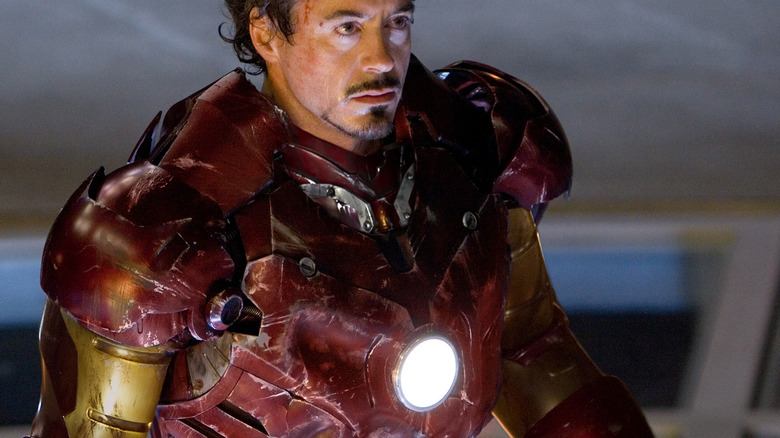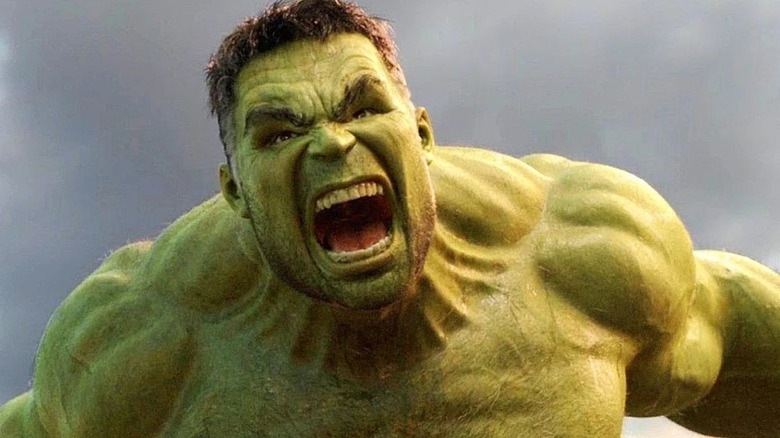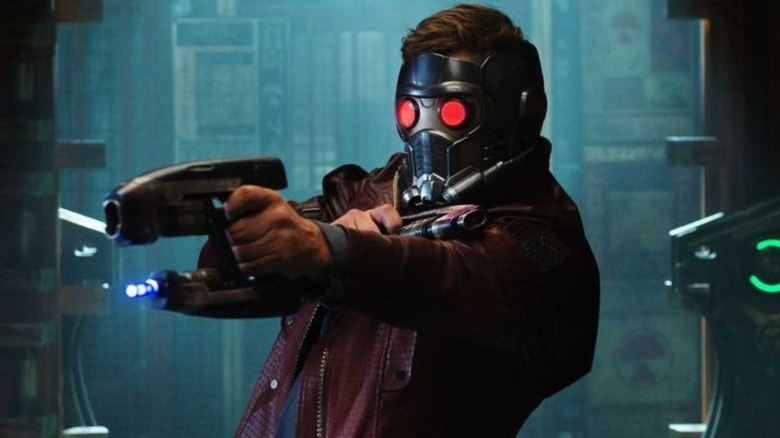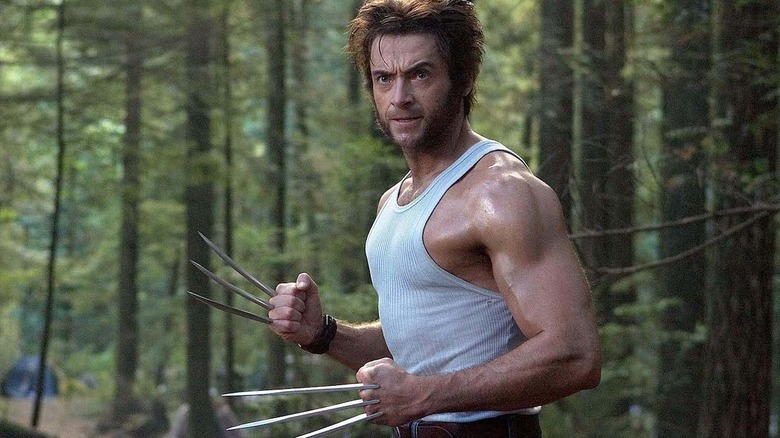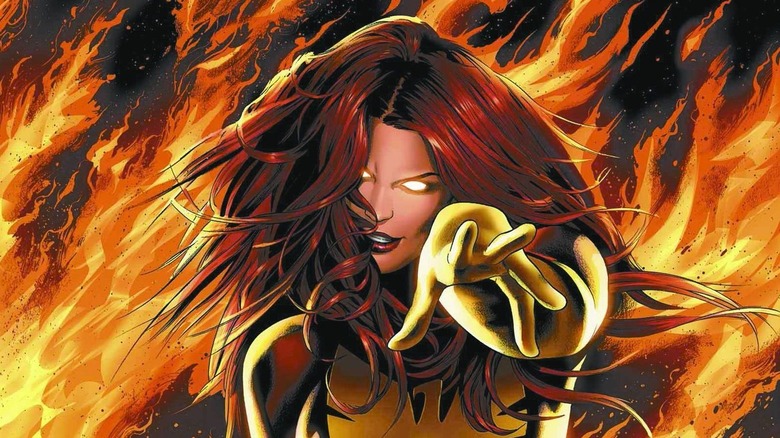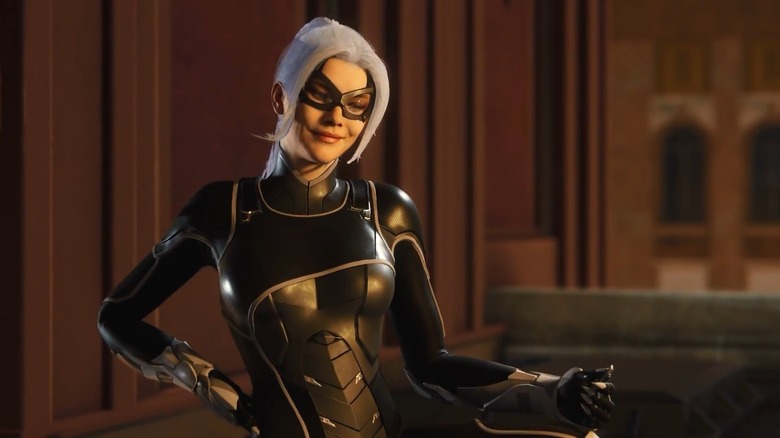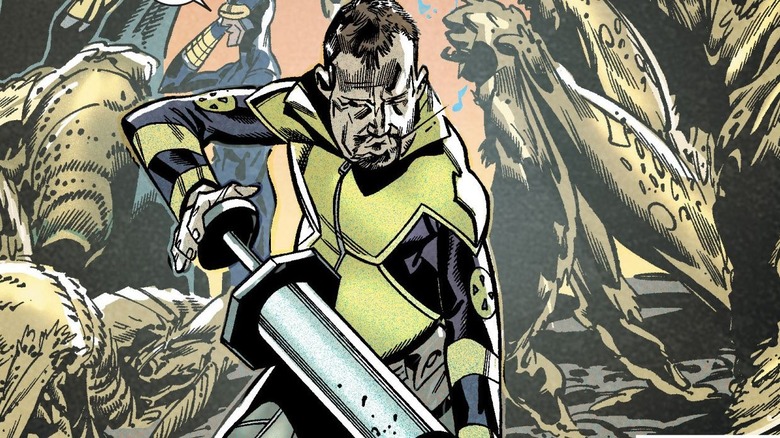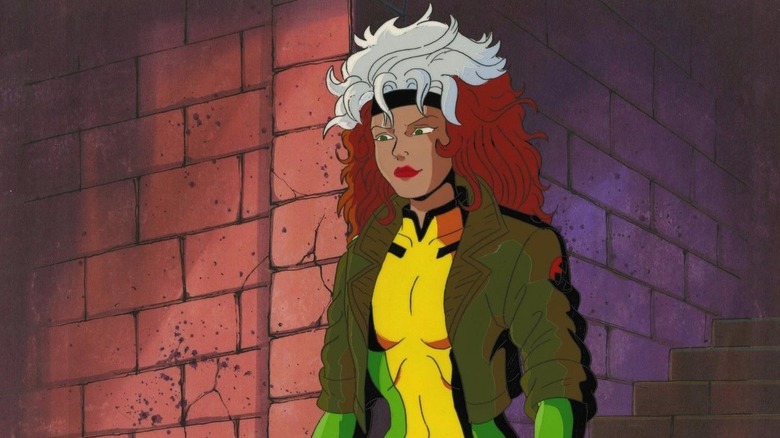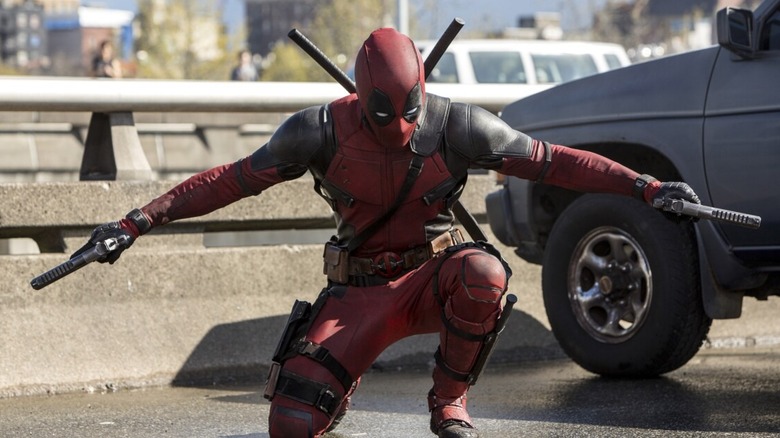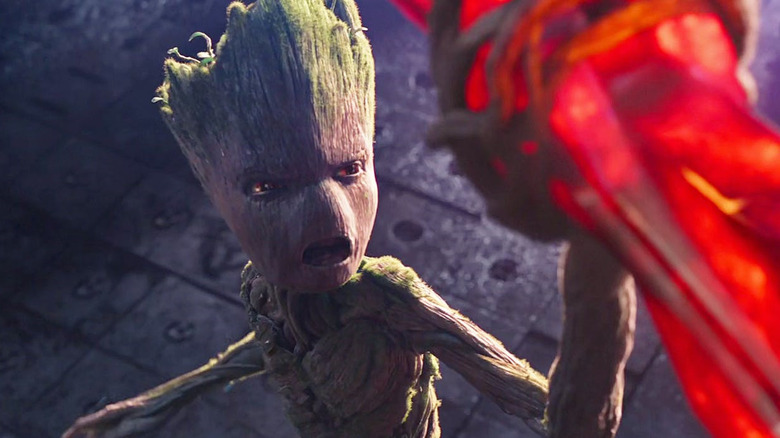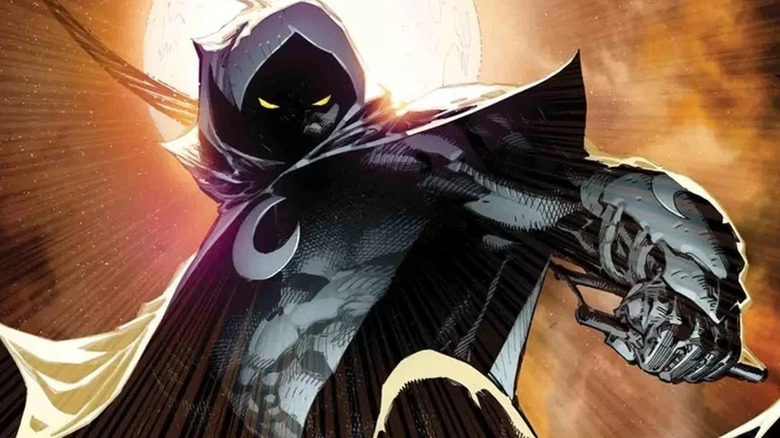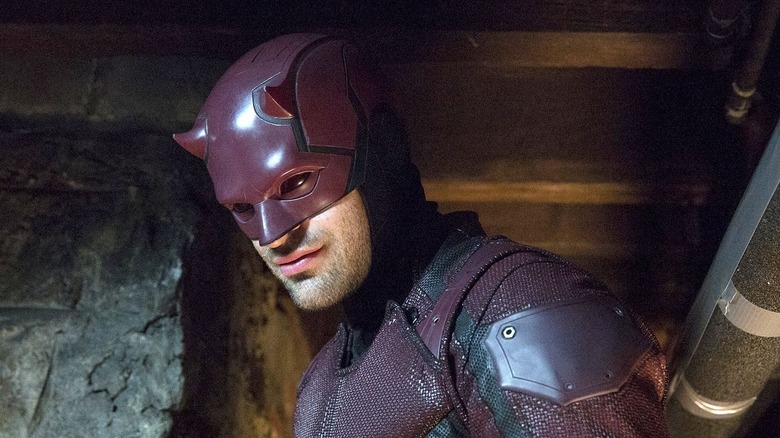Marvel Heroes Who Would Be Horrible Friends In Real Life
In the many worlds that make up the Marvel universe, there is a plethora of heroes, villains, and every moral leaning in between. Some of these good guys and bad guys lead very public lives, like Doctor Doom presiding over his own country of Latveria. Others, like Spider-Man, struggle to keep their identities a secret in order to protect the people they care about. But no matter which approach they take, each of these fantastic characters will invariably have people close to them. They may be underlings, co-workers, teammates, or in certain instances, actual friends.
Now, one might think that being friends with a super-powered individual would be a close second to having powers of one's own. But that all depends on the hero themselves. Do they have a secret identity like Spider-Man's Peter Parker? Or are their superpowers and exploits very much a part of their public personas like Tony Stark's Iron Man? One must consider whether being friends with said hero will now paint a giant target on their back. And of course, it's also wise to remember that heroes and villains are people, just like anyone else. Their powers don't prevent them from experiencing the same emotional and mental struggles and flaws that everyday folks do — in fact, superhuman abilities and lifestyles can even exacerbate these issues.
With all this in mind, it becomes a lot harder to romanticize friendships with certain superpowered individuals in the Marvel canon. In fact, the following heroes would be downright horrible pals.
Spider-Man
While he himself might be friendly enough, the collateral damage that comes with being Spider-Man's friend is enough to make anyone second guess that relationship. Spider-Man is one of Marvel's few heroes who still opts to keep a secret identity. Unlike characters like Iron Man, who revealed his secret identity at a high-profile press conference, Spider-Man has done a relatively decent job at keeping his true identity a secret. That doesn't mean that Peter Parker and those he associates with are free from Spider-Man's influence, though.
Besides him constantly disappearing and running late, should a villain find out Spider-Man's secret identity, more often than not those closest to him become targets. On more than one occasion and in more than one universe, someone has learned his identity and used it to severely hurt the web crawler. Usually, it's a matter of kidnapping someone close to Spider-Man to lure him into a fight. Sometimes this ends tragically, as in the cases of both then-love interest Gwen Stacy and beloved mother figure Aunt May dying in Peter's arms after an attack. It makes the occasional friendly web swing around the city look like a pretty measly reward for the risk.
Iron Man
Rich? Check. Brilliant? Check. Likes to party? Check. Iron Man might seem like the ideal person to want to befriend. However, his ego, mistrust of others, and problems with alcoholism tend to keep people at bay. Tony Stark is the stereotypical billionaire playboy inventor, who became a philanthropist and superhero following his captivity at the hands of bad actors. The war and the captors change depending on the decade of the origin story, but the general plot remains the same. In Iron Man's MCU incarnation, Tony is abducted by a band of terrorists working in league with his friend and business partner, Obadiah Stane.
Tony Stark has demonstrated that he can actually be a very kind, caring, loyal, and fun person to be around. That being said, his ego is nearly unparalleled. He's brilliant, knows it, and doesn't mind showing it off to prove a point, no matter how insignificant it may be or who he might steamroll in the process. It is this obstinance that leads to a "civil war" between factions of super-powered individuals (and former friends) backing either Iron Man or Captain America. It's one thing to have a volatile friendship, but associating with Iron Man can have consequences that extend across the globe.
If you or anyone you know is struggling with addiction issues, help is available. Visit the Substance Abuse and Mental Health Services Administration website or contact SAMHSA's National Helpline at 1-800-662-HELP (4357).
The Hulk
Being friends with Bruce Banner is like a constant game of "Don't Wake Daddy" — except in this case, Daddy is a nigh-indestructible behemoth with the power to wipe out entire cities. The Hulk is one of those rare heroes whom the average person living in his universe might not even know has an everyday, human alter ego. And if they did, it's unlikely they would care, as it's arguable that the damage the Hulk does outweighs the good brought about by the genius intellect of Dr. Bruce Banner. This was a chief plot point of the "Planet Hulk" comic series, which saw citizens of Earth send the Hulk into space, unable to deal with him any longer.
It is also the core issue in trying to build or maintain a friendship with either Dr. Banner or the Hulk. In many instances, the Hulk is the equivalent of a wild animal that cannot be reasoned with. As such, Banner will do everything in his power to contain the creature, usually by isolating himself from others. So, assuming one could even find him and remain in his company long enough to befriend him, they would have to do the utmost to keep him calm. And even if they managed that, a random outlier, such as the military or some other organization hunting the Hulk down, could trigger his dangerous alter ego to appear.
Star-Lord
The MCU has portrayed Star-Lord as a simple, fun-loving guy with a penchant for adventure. The offspring of a living planet and an Earth woman, Peter Quill would eventually find his way into space and lead an intergalactic team of heroes and rogues trying to save the galaxy at large. As with many other heroes on this list, the ideas of flying around in space, going on adventures, and living out one's cosmic fantasies make friendship with Star-Lord an interesting proposition.
However, his greed, ego, and horrendously bad luck would be enough to ruffle anyone's feathers. At his core, Star-Lord is an extremely selfish person. While he will ultimately do the right thing, more often than not it is a result of peer pressure rather than an inherent desire to do good. This selfishness tends to create a divide between him and those closest to him. Rather than admit he is wrong, Quill will go out of his way to try and prove he was right all along. This, coupled with notoriously bad luck, often makes sticky situations much worse. He might be fun to accompany on short jaunts into space, but it's hard to argue that he's friend material.
Wolverine
How does one relate to a man who has been alive for nearly two centuries? You really can't. Throw in a hair-trigger temper and literal leagues of assassins always after him and Wolverine quickly becomes a hassle. This hard-as-nails hero is a unique character both in terms of his place in the Marvel universe and his friendship material. He is the stereotypical lone wolf, often on his own and preferring it that way — because, much like the Hulk, Logan views himself as a monster wearing a man's skin and suffers from tremendous guilt for the things he's done over the course of his incredibly long life.
Should one get past that initial defense mechanism and begin to plant the seeds of trust, a slew of other issues arise. Logan has been around for nearly 200 years and has quite literally seen almost everything the world and the space surrounding it have to offer. Unless a prospective friend is a fellow X-Man or Avenger, there won't be too much in common to discuss; it's unlikely that Wolverine will be interested in the pergola that was just built in the neighbor's backyard. Even assuming he is, that pergola will have a much shorter lifespan for simply being in Wolverine's orbit, as it's inevitable that some supervillain or assassin will destroy it in an attempt to finally take him out.
Phoenix
Jean Grey was a founding member of the X-Men and is one of the world's most powerful mutants thanks to her telekinetic and telepathic powers. Through her own efforts and those of her teammates, she has been instrumental in quelling many threats to the Earth's population, both terrestrial and extraterrestrial. While undoubtedly heroic, how does she stack up as a friend?
The inherent problem with being Jean Grey's friend is the same issue that would arise from being friends with any telepath. No matter how secure one is in their thinking, it's only a matter of time before paranoia sets in and you begin wondering if said telepath is reading thoughts they shouldn't. While best friends tend to share everything, that benefit should be a choice.
As if the potential invasions of privacy weren't bad enough, Jean Grey also plays host to the cosmic Phoenix Force. Once corrupted, this force turns her into a Dark Phoenix who seeks the destruction of all life in the universe. While this is a problem in and of itself, it does usually resolve on its own via Jean's near-unending cycle of death and rebirth. But this creates another issue as far as friendship is concerned: One funeral for a friend is awful enough, let alone the half-dozen times at least one version of Jean Grey has died.
Black Cat
Felicia Hardy, otherwise known as Black Cat, is an on-again, off-again ally to Spider-Man when she's not moonlighting as one of the world's greatest cat burglars. This former villain turned anti-hero has also been a love interest for the web-head despite a lack of attraction to his alter ego, leading to a complicated relationship (she is very much to Spider-Man what Catwoman is to Batman in the DC universe). When initially introduced, Black Cat doesn't sport any superpowers. However, in a test administered by the Kingpin, Black Cat is left with the psionic ability to affect probability fields. This essentially induces bad luck in her opposition.
Even if you're not her opponent, becoming friends with Black Cat is a tricky prospect, as one can never be sure where her true loyalties lie outside of looking out for herself. One of the biggest problems in her relationship with Spider-Man is a seeming unwillingness or inability to give up a life of crime. So, the question becomes one of whether she is befriending someone out of genuine interest or if she's trying to maneuver closer to an object she wishes to obtain. In nearly every instance, the answer is the latter. It's kind of hard to be friends with someone when you can't be sure if or when they'll rob you.
ForgetMeNot
In what may be one of the worst mutant abilities out there, ForgetMeNot's power is that people simply forget him. It's kind of hard to be friends with someone who literally can't be remembered. In fact, not much is known about ForgetMeNot due to his powers (including "Imperceptibility," "Telepathic Imperceptibility," and "Undetectability"). Even the X-Men's leader, Professor Charles Xavier, had to create a mental reminder that would trigger every hour in order to remember that his subordinate existed. Despite this, ForgetMeNot has proven to be an invaluable member of both the X-Men and X-Force.
However, no matter how much someone might want to be friends with ForgetMeNot, it's just not possible. His powers create a blank space in a person's mind where he should be. This ability is so intense that even recording him, taking pictures, or otherwise documenting him becomes an issue. This has led to a very lonely existence for the hero. If he did end up coming over for a movie night, the only signs of his visit would be one wondering how they ate so much snack food all by themselves and why their toilet paper supply is lower than it ought to be.
Rogue
Rogue is one of the more well-recognized members of the X-Men. Her unique powers allow her to absorb the abilities and memories of those she touches. It was an initial conflict of this nature with Ms. Marvel that led to Rogue inheriting her base powers, which include flight, super strength, and invulnerability. Over the years, she has sought a way to bring her own power under control — with mixed results. But controlled or not, she has found a way to make good use of her strengths as an X-Man.
Despite her southern charms, Rogue comes with a lifetime of baggage and emotional trauma. Plus, to further complicate matters, she either puts folks in a coma or outright kills them if she touches them. So, despite her otherwise amicable demeanor, it could be difficult to be friends with her. A simple spur-of-the-moment high five could land one of her chums in a coma. And though she is very good about keeping any and all exposed skin covered, the emotional strain that comes with her powers has had a heavy impact on her personality. She suffers from a tremendous amount of guilt and is often focused on all the tragedy brought about by her powers, making it difficult to devote attention to a friendship.
Deadpool
Wade Wilson is a former international assassin whose work earned him quite a reputation. Unfortunately for him, it also led him to develop an aggressive case of cancer. Desperate to find a cure, he enrolls in the Weapon X program, which offers him an equally aggressive healing factor. Rather than cure the cancer, though, the healing factor offsets the cancer, thus keeping him alive — but at a high physical cost. And as if that weren't enough misfortune, the stay in the Weapon X facility leaves quite the damaging mental impact on him. After freeing himself, Wilson puts his newfound powers to work as a mercenary under the name Deadpool.
Everyone's favorite merc with a mouth is regarded by many of those in his universe as loud, annoying, and one of the biggest pains in the butt next to Wolverine's claws. While initially charming and entertaining, the sarcasm and never-ending flurry of jokes are enough to wear anyone thin. Compounding this is Deadpool's general lack of decorum and a disgusting lifestyle that involves very little upkeep of his domicile. He's the kind of person who would be fun to hang out with in very small bursts (though it would always have to be at his friends' pads), but longer engagements are nearly impossible due to his personality.
Jessica Jones
Jessica Jones is a former superhero and now the lead investigator for Alias Private Investigations. While with her family on a trip, their vehicle was struck by a military convoy carrying radioactive chemicals. Her family unfortunately perished, and Jessica was eventually adopted by the Jones family after spending a short stint in an orphanage. Some time later, she discovers the accident gave her super strength, limited invulnerability, and flight.
Trust issues, lying, alcoholism, and more defensive layers than an onion sum up Jessica Jones. The bulk of these issues stem from PTSD that arose from being captive to The Purple Man, a.k.a. Killgrave, for several months. Despite being free from his mind control for several years, Jones still struggles with the trauma of her imprisonment. Unfortunately, she tends to do this in a variety of unhealthy ways, including substance abuse and violent outbursts. Jones is an incredibly smart and capable detective, but her stubbornness often puts her at odds with existing and potential friends.
Teenage Groot
When the first "Guardians of the Galaxy" film came out in 2014, the walking, talking tree known as Groot quickly became a fan favorite. His comradery with the team of galactic misfits and his adoptive best friend Rocket reveal a kind and caring individual. In keeping with his character, Groot ultimately sacrifices himself towards the end of the film to protect his new friends. Thankfully, Rocket is able to salvage a single stem of the fallen hero to restart his cycle of rebirth. Following an outing as the lovable Baby Groot, the wooded hero eventually grows into an adolescent.
What's worse than a moody teenager? A moody teenage plant only capable of saying three words. For those with a teenager of their own, Teenage Groot resonated (as did the Guardians' consternation with the sulking sapling). In fact — ask just about any parent — unless one is a teenager, it's pretty hard to befriend one, let alone get more than three words out of them. Teenage Groot's primary interest is in a handheld game and little else for the bulk of his screen time. Unless your ideal time with a friend involves sitting in silence in a root-infested room, playing games with someone whose language is largely indecipherable ... it's going to be hard to get along.
Moon Knight
Moon Knight, otherwise known as Marc Spector, is a former military operative-turned-mercenary. While on a mission in Sudan, the job goes sideways and Spector is attacked by his partner at the time and left for dead. Seeking shelter, Spector is brought to a recently unearthed tomb and placed before a statue of the Egyptian moon god Khonshu. Though he appears to die, Spector is brought back to life and claims it is the will of Khonshu that he protect and avenge the innocent. Suffering from dissociative identity disorder after this psycho-supernatural encounter, Moon Knight plays host to a number of different personalities, all with a range of abilities.
The problem with Moon Knight as a friend isn't the obvious one. While multiple personalities may be difficult to juggle, the core issue with Moon Knight is that he is arguably a psychopath. Despite lending him power (depending on the writer), Spector's connection to the moon god Khonshu has caused significant brain damage to the hero. Fueled by vengeance as a concept and driven to perform horrible acts, Moon Knight is more an avatar of justice than a person; one can't be friends with Moon Knight any more than one can be friends with a flickering flame. Plus, there is the issue of the countless deaths at Moon Knight's hands, not to mention the time he gained cosmic power and sought to wipe out all life in the universe.
Daredevil
Matt Murdock, otherwise known as Daredevil in the Marvel universe, is a hero responsible for one particular neighborhood of New York City. At a young age, Matt Murdock was in an accident that left him without his vision. After a lifetime of training, he eventually honed his senses to offset the lack of vision and make him a formidable combatant. Now, as the guardian of Hell's Kitchen, Daredevil uses his superhuman senses and reflexes to keep crime in check while taking on several supervillains like the Kingpin and Bullseye. When he's not prowling the rooftops, he is an attorney with a similar goal of protecting the residents of the troubled neighborhood where he grew up.
The core issue that prevents Daredevil or Matt Murdock from being a good friend is his lack of trust in those around him. His constant lying, putting himself in harm's way, and disregard for his friend's opinions and concerns has put a serious strain on those close to him. While his drive and determination would otherwise be admirable qualities, Daredevil takes these traits to an unhealthy level that could arguably be called obsession. This tendency routinely puts him in a tight spot and leaves him at death's door on several occasions. If not for those close to him, he would have died several times over — and that's quite a heavy burden to put on a friend.
